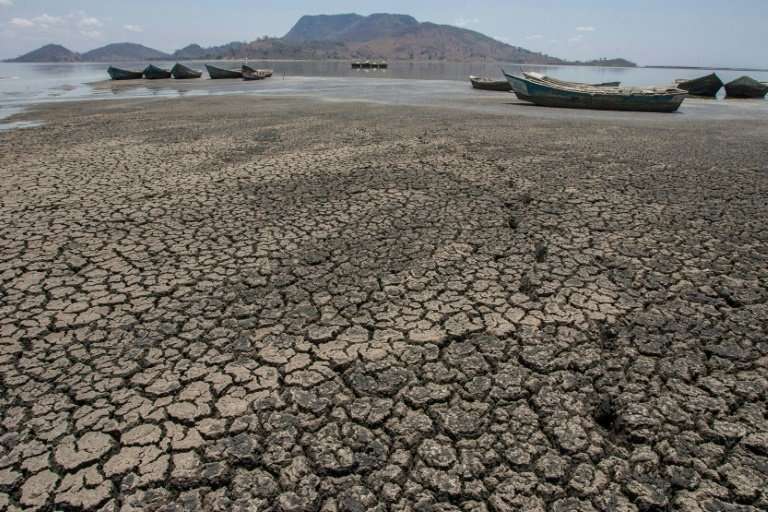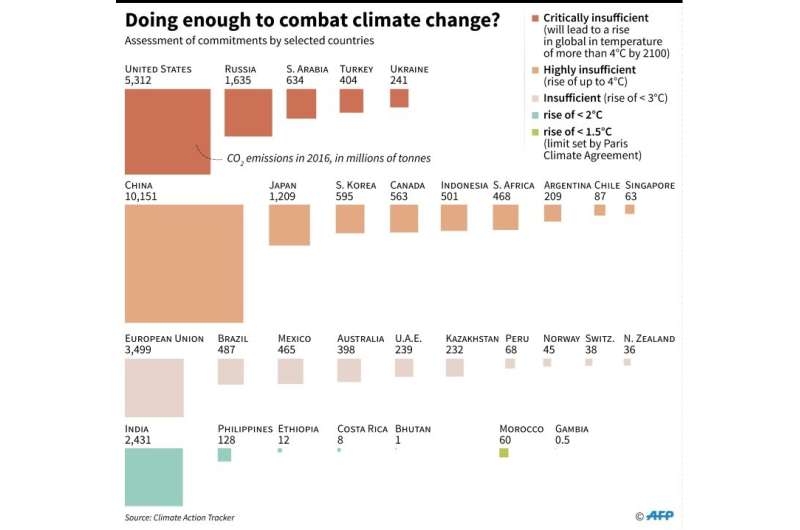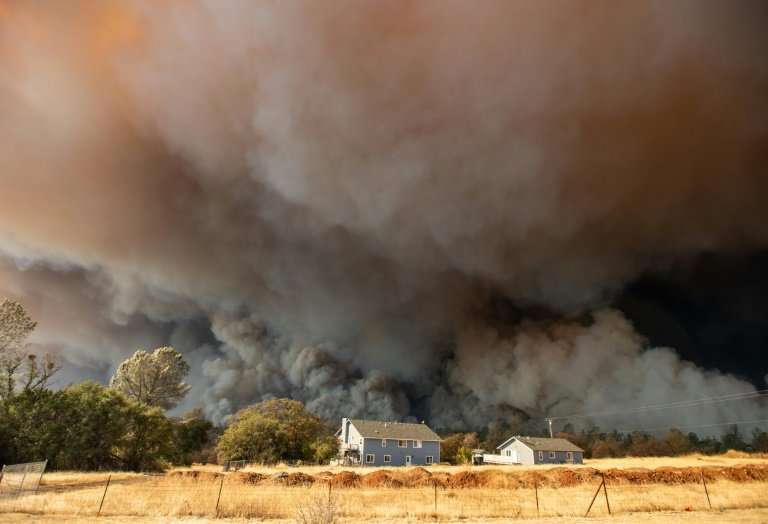High hopes and low expectations for UN climate summit

The warnings from science and Earth itself have never been so dire, but nearly 200 nations gathering in Poland next week face stiff headwinds in trying to ratchet up their response to the threat of catastrophic climate change.
One thing all parties at the troubled UN talks agree on is that standing pledges to slash greenhouse gas emissions fall dangerously short.
These voluntary national commitments must triple to cap global warming below two degrees Celsius (3.6 degrees Fahrenheit), the collective target set in the 2015 Paris climate treaty.
To hold the rise in temperature to the safer limit of 1.5C, ambition would have to increase fivefold, and emissions drop by half within a dozen years.
Nor can the 25,000 negotiators, experts, NGOs and business executives descending on Katowice doubt the need for urgent action.
With only a single degree Celsius of warming so far, the world has seen a crescendo of deadly wildfires, heatwaves and hurricanes made more destructive by rising seas.
On current trends, temperatures are on track to rise roughly 4C by the century's end, a scenario that would tear at the fabric of civilisation, scientists say.
The last 18 years, save one, are the hottest on record, the World Meteorological Organization reported Thursday, noting that climate-addled extreme weather in 2018 "left a trail of devastation on all continents."
Last week, a US government report said climate change is already hurting the global economy and, without action, will sap hundreds of millions of dollars annually from the US economy by 2100.
Through it all, carbon emissions continue to climb: 2017 saw record levels, and scientists next week are almost certain to confirm the same for 2018.

Domino effect
But no one expects a breakthrough at the COP24 climate conference, which runs through December 14.
"The wind is not in our sails when it comes to raising ambition," Michel Colombier, scientific director at the Institute for Sustainable Development and International Relations in Paris, told AFP.
US President Donald Trump's decision to ditch the Paris Agreement weighs heavily on talks, as does the possibility that other nations will follow suit.
Brazil's strongman president-elect Jair Bolsonaro, for one, promised as much during his campaign.
"Katowice may show us if there will be any domino effect," Laurence Tubiana, CEO of the European Climate Foundation and, as France's top negotiator, one of the main architects of the 2015 treaty, told AFP.
Meanwhile, the Beijing-Washington partnership so crucial to sealing the Paris deal three years ago has given way to a superpower rivalry.
"The process today is burdened by geopolitics," said Clement Senechal, climate lead for Greenpeace France.
"When the world's two biggest carbon polluters—China and the United States—are in a trade war, it poisons the diplomatic well."
As for boosting ambition, all eyes are on a summit convened by UN Secretary-General Antonio Guterres for next year.
"The big players are not going to signal anything until the September 2019 climate summit, at the earliest," said Alden Meyer, head of strategy and policy for the Union of Concerned Scientists in Washington.

'Things could unravel'
Amid the gloom, there are positive signs.
Renewables—especially solar and wind power—continue to expand rapidly and are cost-competitive with combustion-based fuels in many markets.
Scores of cities and sub-national governments have set ambitious long-term goals to purge carbon and go electric. Hundreds of major multinationals have committed to greening their operations and reporting on exposure to climate risk.
"But all of this combined is nowhere near enough," said Andrew Steer, president and CEO of the Washington DC-based World Resources Institute.
"As we approach the COP, one thinks of Nero fiddling while Rome burns—the lack of pace and ambition is simply unacceptable."
The Katowice climate conference's immediate mandate is to finalise the so-called "rulebook" for the Paris Agreement, which enters into force in 2020.
Seemingly minor procedural issues—how to report, for example, on emissions cuts or financial flows—have become proxies for underlying issues that still divide rich and developing nations.
"If you don't get the political compromises needed, then the whole thing could unravel," said Meyer.
The sharpest divisions are over money, starting with $100 billion (88 billion euros) per year promised to developing nations by 2020.
A running tally of climate finance published last week by the UN showed a trendline roughly on track to hit that total, but climate vulnerable nations say too much is in the form of loans rather than grants, and too little is earmarked for adapting to climate impacts.
But the larger challenge remains retooling the global economy, experts say.
"We're not talking about $100 billion, but a shift in financial flows from 'brown' to 'green' investments more like $5 trillion," said Colombier.
© 2018 AFP




















